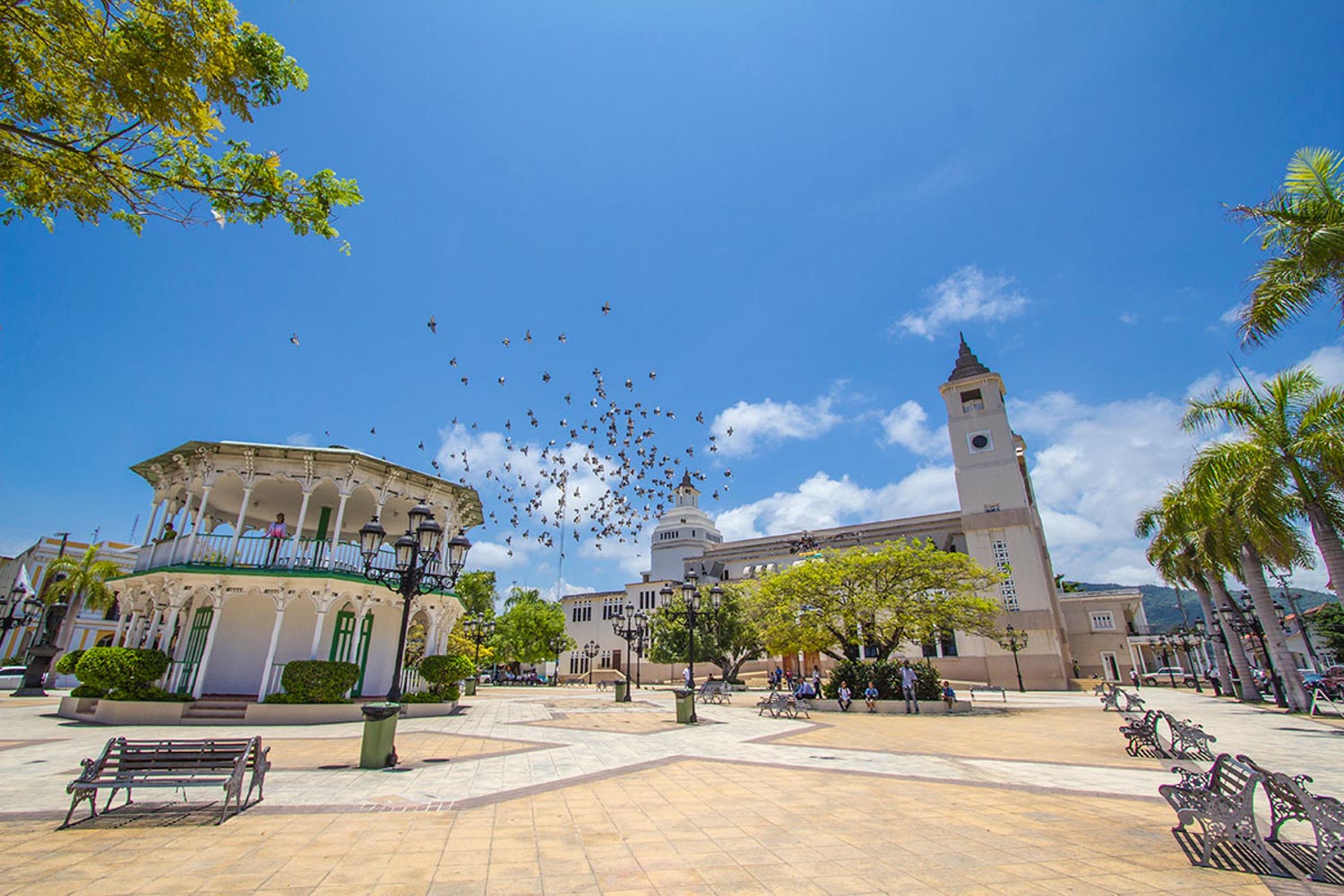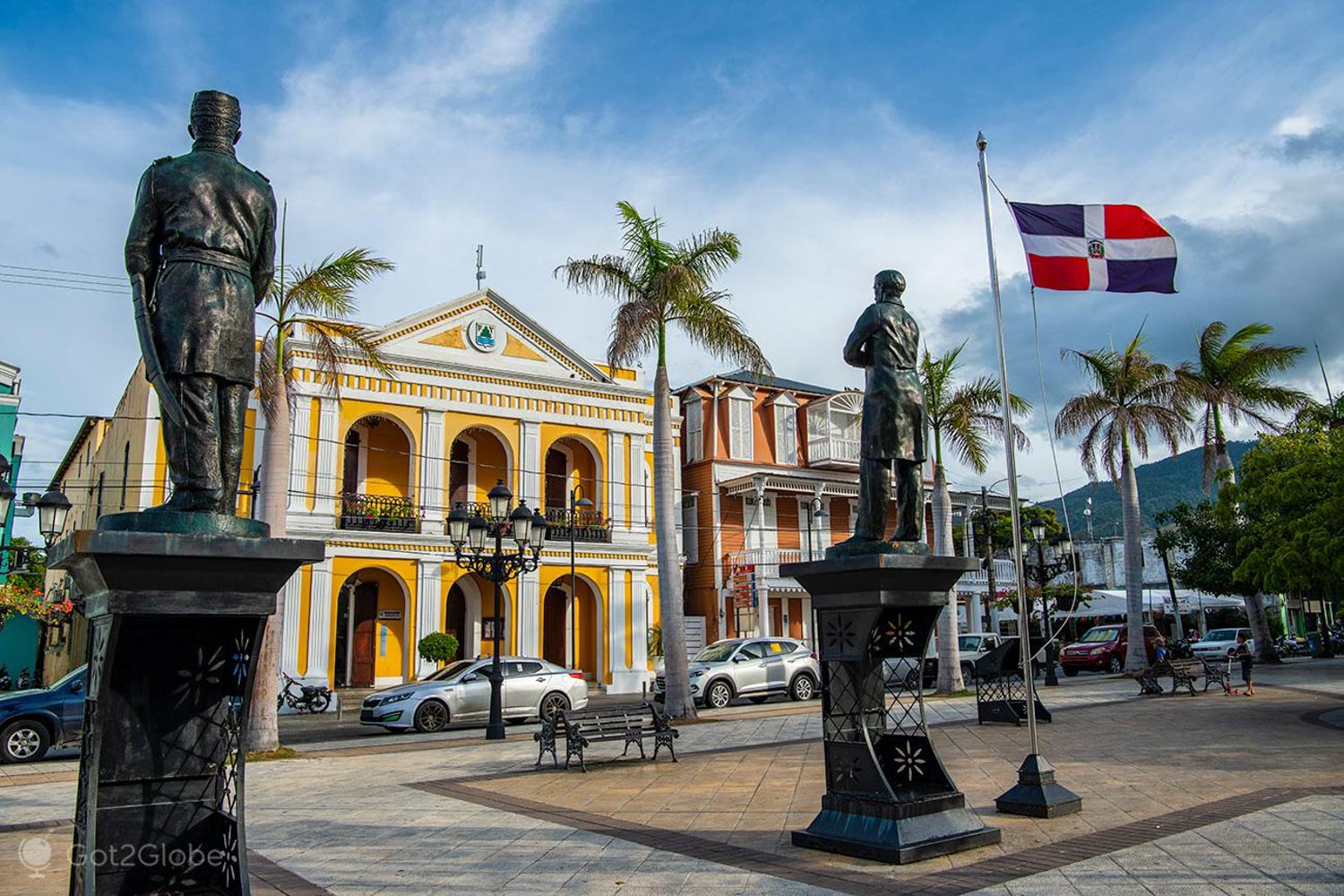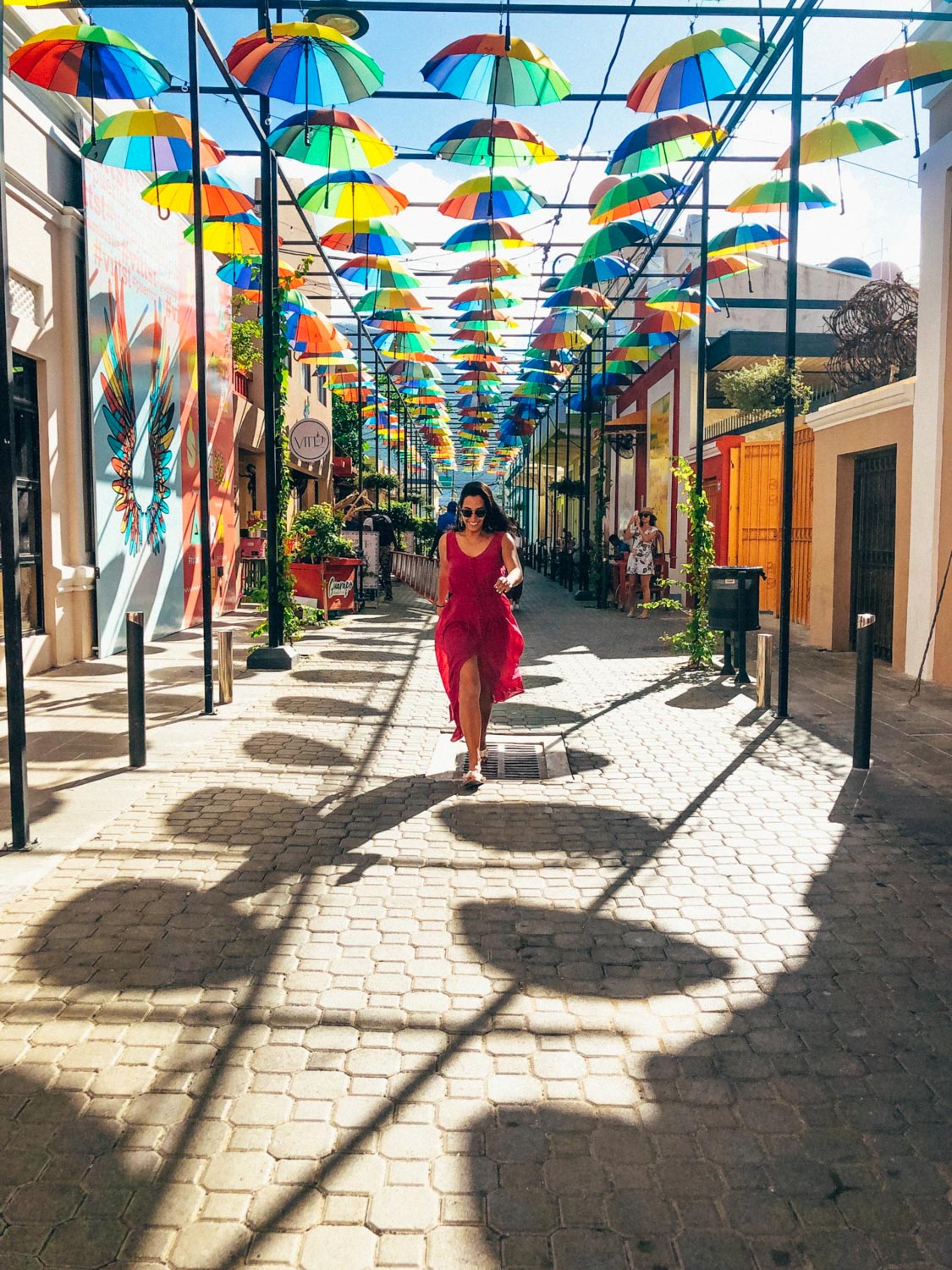Puerto Plata
Exploring Dominican Republic Puerto Plata
The birthplace of tourism in the Dominican Republic, Puerto Plata continues to pack a mighty punch. Its spectacular, sprawling landscape combines sea, mountains, lush valleys, rivers, and a multitude of beaches. Its fertile soil grows cacao and coffee trees, while underneath rests the world’s clearest amber.
Savvy explorer Christopher Columbus knew there was much to discover on this northern Atlantic coastline–eventually finding gold deposits–when he glimpsed it from his ship in 1492. Drawn by the sight of clouds shimmering over Mount Isabel de Torres and illuminating Puerto Plata’s vast blue shoreline, he named the area the “Silver Port” and settled at La Isabela with a mixed community of Tainos–original inhabitants of the area–and Spaniards, built the first church and his first home in the Americas. You can follow Columbus’s trail and tour these archeological ruins, now part of a national park.
Puerto Plata’s natural bounty continues to astound those who lay eyes on La Novia del Atlántico, or as locals call it, the Atlantic’s Darling. A bird’s eye view from the cable car–the only one in the Caribbean, taking passengers to Mount Isabel de Torres and its lush botanical gardens–reveals part of an Atlantic coastline with more than 100 kilometers (62 miles) of beaches gracing multiple coastal villages, inland farming communities replete with rivers and falls, and hotels of all sizes to suit all tastes. To boot, Puerto Plata is home to colonial vestiges, including the largest collection of preserved 19th century Victorian-style houses in the Caribbean, the oldest amber fossils in the world on display at the Amber Museum, and one of the first colonial period fortresses in the region at Fortaleza San Felipe, dating back to 1577.
East and west along Puerto Plata’s coastline, steady trade winds, river systems, the vast Cordillera Septentrional mountain range and the Atlantic Ocean conspire to create a world of outdoor adventure, including beach towns renowned for water sports. Less than half an hour from the city, Sosúa was first settled by Jewish immigrants who fled Nazi Germany, boasting beautiful beaches where expats and locals coexist, and rich underwater sites. Nearby Cabarete is a world famous hub for windsurfing, surfing, and kiteboarding, and a favorite cosmopolitan hideout of snowbirds. Playa Dorada is for those who want to relax in style on golden stretches, with seaside activities near the city, from canyoning at 27 Charcos of Damajagua waterfalls to snorkeling at Cayo Arena, and relaxing at Ocean World Marina.
Nature aside, Puerto Plata’s multitude of vibrant villages translates into a host of cultural experiences. Home of community tourism, here is where you can hike family-owned cacao or coffee plantations, learn how to play and dance merengue from a family of musicians, or immerse in Dominican pelota at the Bartolo Colón stadium and museum. Along the way are a multitude of culinary experiences, from roadside snacks to beachside seafood, and gourmet international restaurants.
Puerto Plata’s main points of entry include the Gregorio Luperón International Airport (POP), located 15 minutes from the city center and Playa Dorada or Costa Dorada hotels, and the Amber Cove Cruise Center in Maimón.






